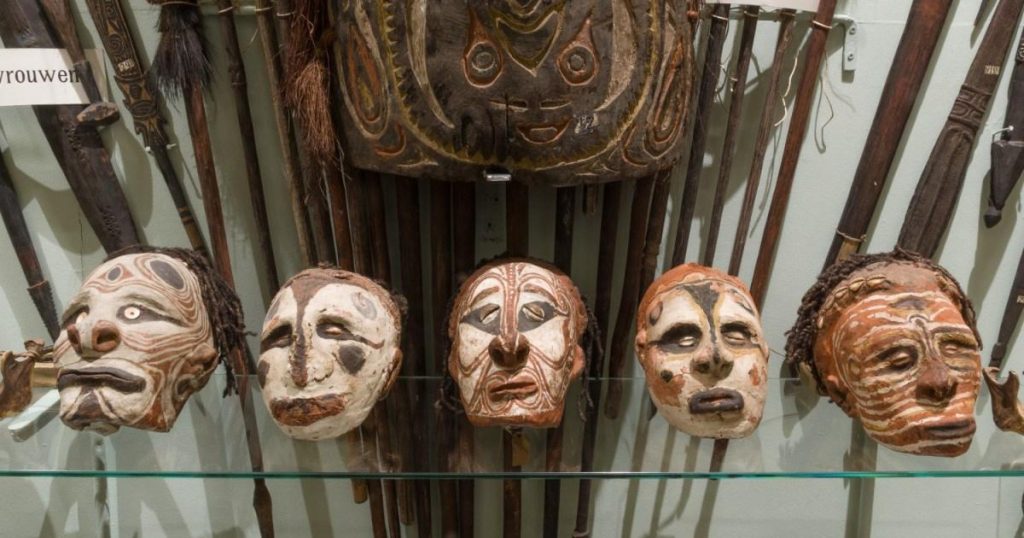The repatriation of cultural artifacts, particularly those acquired during periods of colonialism, presents a complex and nuanced challenge for museums and source communities alike. The case of the “cursed” skulls from Papua New Guinea serves as a poignant example of this complexity, highlighting the fact that restitution is not always a simple matter of returning objects to their place of origin. The Iatmul people, who created these ritual skulls, declined the offer to have them returned by the Missiemuseum in the Netherlands, raising important questions about the evolving relationship between indigenous communities and their historical artifacts.
The skulls, crafted using actual human skulls as a base, held significant spiritual and ceremonial meaning for the Iatmul people. They were used in a variety of rituals, from mourning and hunting practices to invoking religious favors. These artifacts were taken from the tribe by German Catholic missionaries in the early 20th century, who viewed them as symbols of savagery and used their existence to justify colonial intervention. Over time, these skulls became coveted collectibles among wealthy Europeans, eventually finding their way into museum collections, including that of the Missiemuseum.
In an attempt to address its colonial past and repatriate the skulls, the Missiemuseum initiated discussions with the Iatmul people. The museum’s curator, Paul Voogt, traveled to Papua New Guinea to offer the return of the skulls. However, the Iatmul communities, while acknowledging the historical and cultural significance of the objects, declined the offer. Their reasoning was multifaceted, encompassing the passage of time, the loss of the skulls’ original power and meaning, the uncertainty surrounding the identities of the individuals whose skulls were used, and the fear of potential curses associated with the remains of enemies.
The Iatmul people’s rejection of the skulls highlights the evolving relationship between indigenous communities and their heritage. The passage of time has eroded the direct connection between the current generation and the original owners of the skulls. The rituals and beliefs associated with the skulls have likely changed or faded, rendering them mere “objects” devoid of their original spiritual potency. The fear of potential curses further underscores the complex spiritual beliefs surrounding these artifacts and the potential for disruption within the community if the skulls’ provenance and historical context are unknown.
This case demonstrates that restitution efforts are not always straightforward and that assumptions about the desires of source communities can be misleading. The Missiemuseum’s experience underscores the importance of direct consultation with indigenous communities and prioritizing their wishes over pre-conceived notions about repatriation. It also highlights the ethical complexities inherent in the ownership and display of culturally sensitive objects. While the museum intended to rectify a historical wrong, the Iatmul people’s decision reveals a deeper layer of complexity, where the return of these artifacts could potentially cause more harm than good.
The Missiemuseum’s experience with the Iatmul skulls provides a valuable lesson for museums and institutions grappling with the legacy of colonialism. It emphasizes the necessity of engaging in open dialogue with source communities, respecting their decisions, and understanding the nuanced and sometimes conflicting perspectives surrounding cultural heritage. The repatriation process should be collaborative and sensitive to the specific needs and desires of the communities involved. In this particular case, although the skulls were originally taken under the guise of colonial superiority, the Iatmul people’s decision to leave them with the museum underscores the importance of recognizing the agency and evolving perspectives of indigenous communities in determining the fate of their cultural heritage. The museum, in turn, has a responsibility to continue researching and presenting the skulls with respect and sensitivity, acknowledging their complex history and the ongoing dialogue surrounding their ownership.


